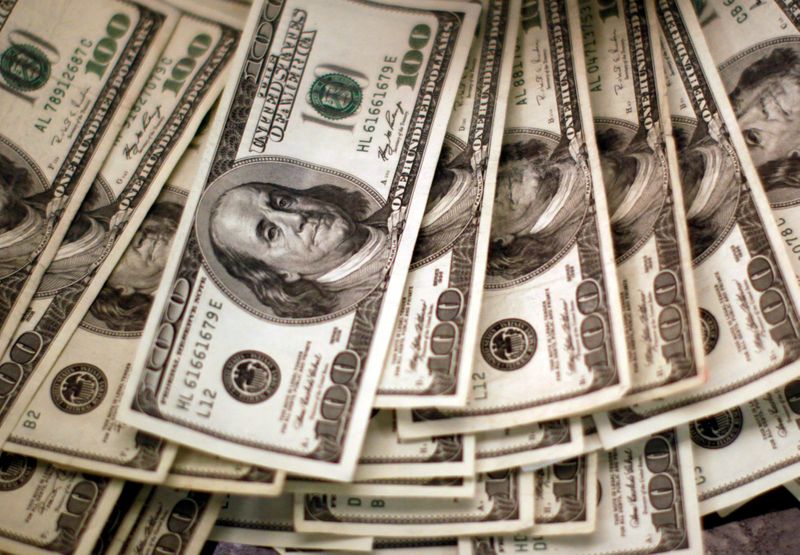By Stanley White
TOKYO (Reuters) - The dollar was on the defensive against most currencies on Friday after a rise in U.S. jobless claims and a dip in Treasury yields dampened the appeal of holding the greenback.
The euro, which has been the biggest beneficiary of a recent decline in the dollar, will come into focus later on Friday as traders brace for euro zone manufacturing data.
A larger-than-expected rise in weekly U.S. jobless claims came just one day after Fed officials warned that a recovery in hiring is starting to slow, raising doubts about how quickly the world's largest economy will bounce back from the coronavirus.
Concern about the U.S. economy, combined with an excess supply of dollars already in circulation due to the Fed's massive quantitative easing, are likely to weigh on the U.S. currency in coming weeks, analysts say.
"Sentiment for the dollar is weak, reflecting all the QE and the decline in real U.S. yields," said Tsutomu Soma, a credit trader at Monex Securities.
"On the flip side, the euro is strong because Europe has already put a firm backstop in place to support economic growth, which has boosted confidence in the euro and euro zone bonds."
The dollar stood at $1.1866 per euro (EUR=D3) on Friday in Asia following a 0.2% decline in the previous session.
The British pound
The dollar also nursed losses against the safe harbour Swiss franc
The greenback was quoted at 105.73 yen
The number of Americans filing new claims for unemployment benefits unexpectedly rose back above the 1 million mark last week, data showed on Thursday in a setback for a U.S. job market that has been crippled by the coronavirus pandemic.
A slight decline in Treasury yields (US10YT=RR) was another factor working against the greenback.
The dollar index (=USD) against a basket of six currencies fell 0.3% on Thursday.
Sentiment for the dollar and risk assets like equities had already taken a hit after dovish minutes from the Fed's most recent meeting, which were released on Wednesday.
Currency moves could be subdued during Asian trading due to a lack of major economic data and concerns about friction between the United States and China.
Traders in the euro are looking ahead to the release later Friday of manufacturing data for the euro zone and for Germany, Europe's largest economy.
The growing consensus is the euro will continue to edge higher because European governments have taken decisive action on stimulus measures to support growth.
In comparison, U.S. Republicans and Democrats are still at loggerheads over additional economic stimulus, which analysts said is another reason to favour the euro over the dollar.

Elsewhere in currencies, the Australian dollar